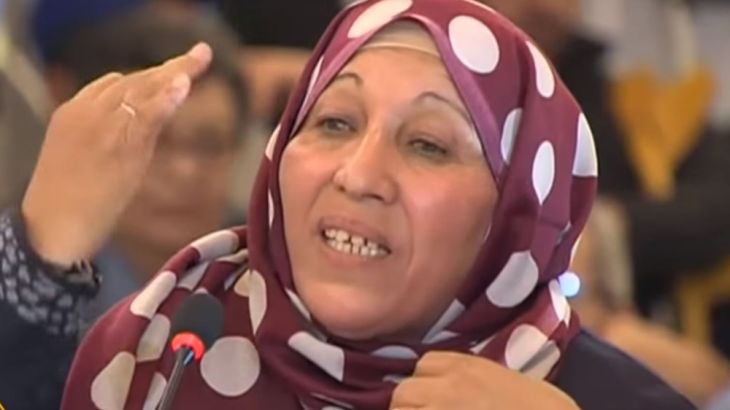Public hearings of torture victims broadcast in Tunisia
Truth and Dignity Commission hopes probe of crimes dating back to 1955 will address past and prevent further atrocities.

A series of public hearings for victims of torture and human rights violations is being heard in Tunisia in an apparent attempt to address mistakes of the past.
Tunisia’s Truth and Dignity Commission investigated crimes and abuses dating back to 1955, an unprecedented step.
Keep reading
list of 4 items‘Mama we’re dying’: Only able to hear her kids in Gaza in their final days
Europe pledges to boost aid to Sudan on unwelcome war anniversary
Birth, death, escape: Three women’s struggle through Sudan’s war
|
|
The testimonies of victims during decades of authoritarian rule and human rights abuses have been broadcast on local television channels.
The government has said it hopes this will help ensure that past atrocities will never be repeated in the country that inspired the 2011 Arab uprisings.
“I dont seek revenge,” said Sami Brahem, a former political prisoner. “My problem is with a system that tortured me. The 2011 revolution washed away all the feelings I had against those who tortured me. But I want to make sure that Tunisia turns the chapter of human rights abuses.”
There was a time when Brahem, a father, thought he would never get out of jail and start a new life.
He was one of thousands of activists who were tortured, and served long terms in prison under the rule of the former leader Zine Al Abedine Ben Ali, who ruled the country for 23 years.
“Those who tortured Tunisians belong in the past; they have no place in the future,” said Sihem Bensedrine, a prominent human rights campaigner and driving force behind the Truth and Dignity Commission. “This is why we are constantly under attack by remnants of the former regime. This process has to succeed so that Tunisia can move forward.”
Bensedrine insisted that those who committed gross violations would face trial.
Brahem said he was not seeking compensation, but wanted to meet his torturers and receive a public apology.
“I am concerned about the future of Tunisia. We have made significant progress in Tunisia compared to other countries, but we are yet to achieve stability. Torture and human rights abuses still continue in my country,” he said.
Follow Hashem Ahelbarra on Twitter: @hashemahel